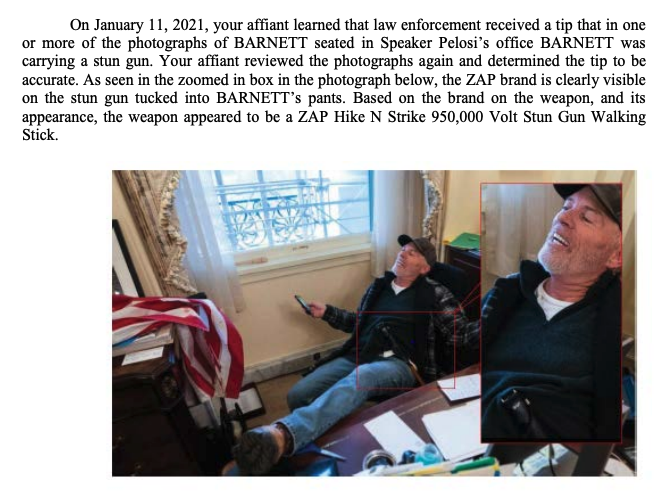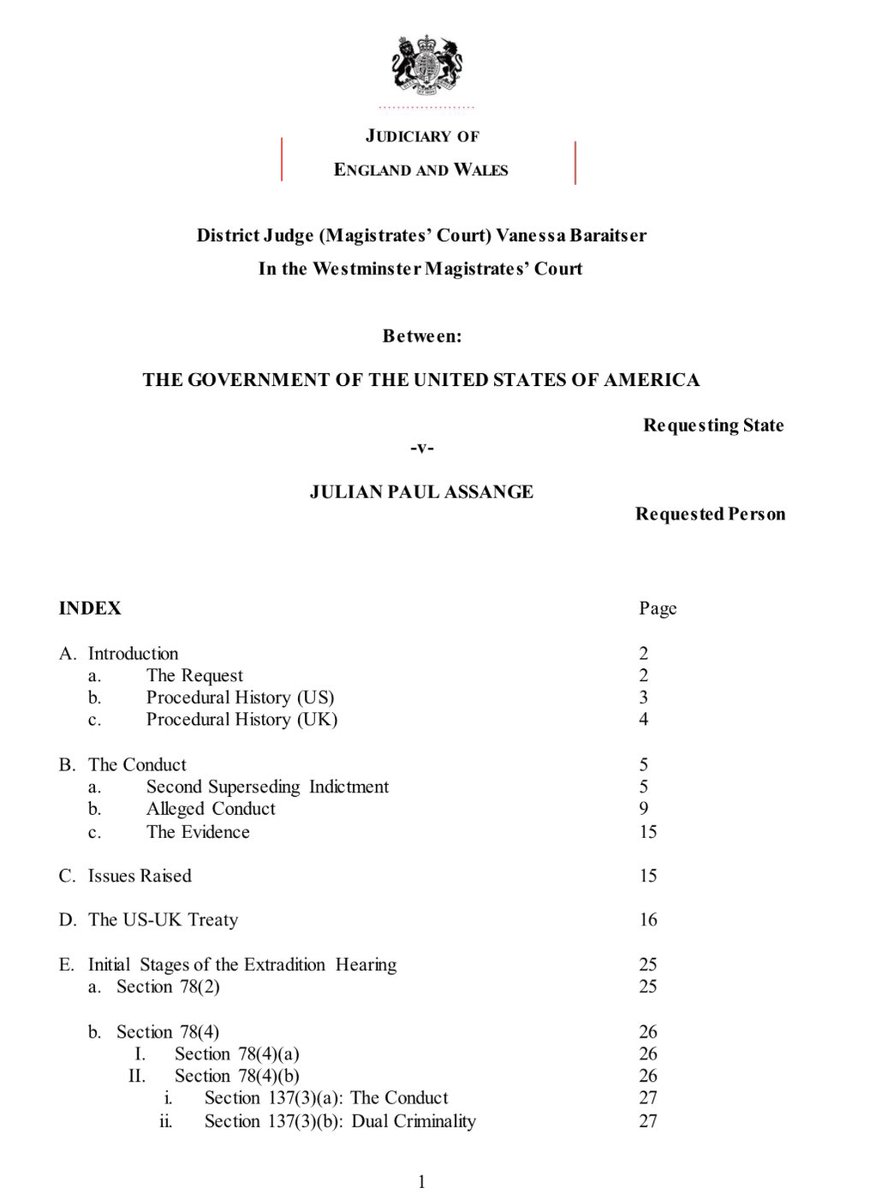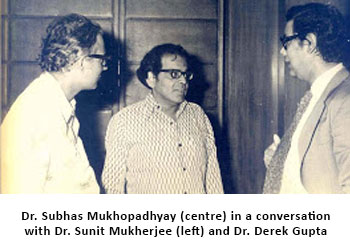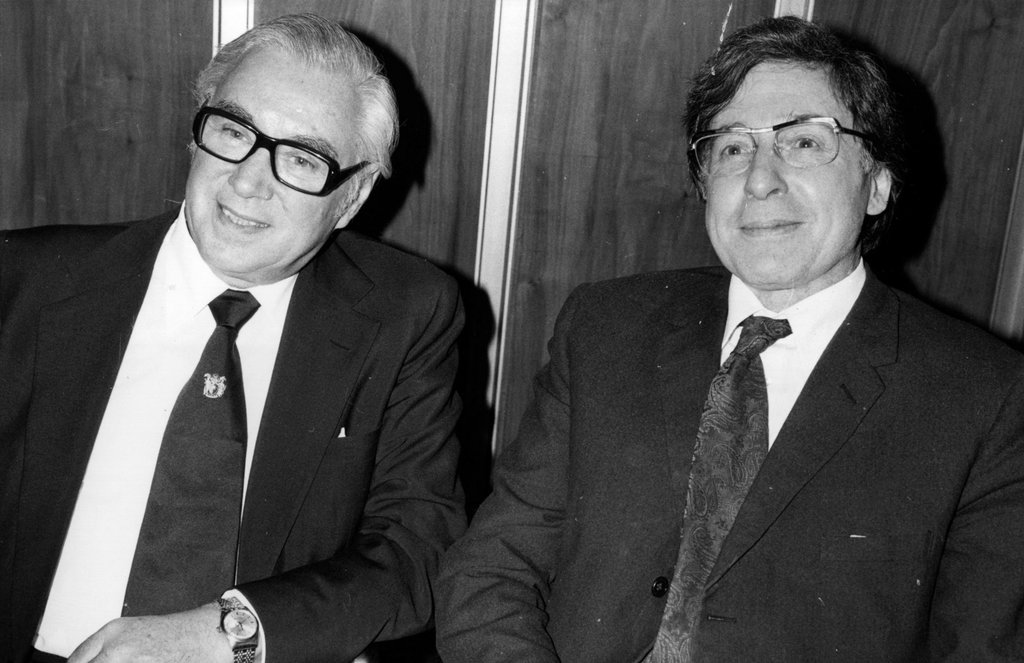This judge in Assange’s extradition hearing is condemning wikileaks saying what they did is not freedom of speech, but rather justification to extradite Assange to the US.
And holy fuck, the judge is ending it with her not being convinced that the US system would prevent Assange from committing suicide in US prison.
“There’s a good chance we could have him [Assange] walking among us this week.”
—@CraigMurrayOrg
More from Legal
Prosecutors alleged Barnett was carrying a stun gun. He's charged with entering a restricted area w/ a weapon, violent entry/disorderly conduct, and theft. There isn't anything on the docket indicating what the govt/Barnett will be seeking as far as detention v. release

We're still waiting for the Richard Barnett detention hearing to start in Arkansas. Meanwhile, follow @o_ema for updates on initial appearances in DC federal court today for a few of the Capitol insurrection arrestees -->
Listening in on more hearings: The 1st is Kevin Loftus, WI, arrested for participating in the riots at the Capitol, charged w Class A misdemeanor. Judge decreed he is released on the condition that he does not return to DC, doesn't drink or do drugs, and doesn't break any laws.
— Ema O'Connor (@o_ema) January 15, 2021
Richard Barnett's detention hearing is underway in Arkansas — Judge Erin Wiedemann will decide if Barnett should stay behind bars. The first witness is FBI special agent Jonathan Willett, who was involved in the Capitol riot investigation
FBI agent walks the judge through surveillance videos that the agent says show Barnett walking in and out of Nancy Pelosi's office, with a "walking stick Taser" on his hip, as well as the widely disseminated photos of Barnett sitting in Pelosi's chair with his feet up
You May Also Like
Always. No, your company is not an exception.
A tactic I don’t appreciate at all because of how unfairly it penalizes low-leverage, junior employees, and those loyal enough not to question it, but that’s negotiation for you after all. Weaponized information asymmetry.
Listen to Aditya
"we don't negotiate salaries" really means "we'd prefer to negotiate massive signing bonuses and equity grants, but we'll negotiate salary if you REALLY insist" https://t.co/80k7nWAMoK
— Aditya Mukerjee, the Otterrific \U0001f3f3\ufe0f\u200d\U0001f308 (@chimeracoder) December 4, 2018
And by the way, you should never be worried that an offer would be withdrawn if you politely negotiate.
I have seen this happen *extremely* rarely, mostly to women, and anyway is a giant red flag. It suggests you probably didn’t want to work there.
You wish there was no negotiating so it would all be more fair? I feel you, but it’s not happening.
Instead, negotiate hard, use your privilege, and then go and share numbers with your underrepresented and underpaid colleagues. […]
Like company moats, your personal moat should be a competitive advantage that is not only durable—it should also compound over time.
Characteristics of a personal moat below:
I'm increasingly interested in the idea of "personal moats" in the context of careers.
— Erik Torenberg (@eriktorenberg) November 22, 2018
Moats should be:
- Hard to learn and hard to do (but perhaps easier for you)
- Skills that are rare and valuable
- Legible
- Compounding over time
- Unique to your own talents & interests https://t.co/bB3k1YcH5b
2/ Like a company moat, you want to build career capital while you sleep.
As Andrew Chen noted:
People talk about \u201cpassive income\u201d a lot but not about \u201cpassive social capital\u201d or \u201cpassive networking\u201d or \u201cpassive knowledge gaining\u201d but that\u2019s what you can architect if you have a thing and it grows over time without intensive constant effort to sustain it
— Andrew Chen (@andrewchen) November 22, 2018
3/ You don’t want to build a competitive advantage that is fleeting or that will get commoditized
Things that might get commoditized over time (some longer than
Things that look like moats but likely aren\u2019t or may fade:
— Erik Torenberg (@eriktorenberg) November 22, 2018
- Proprietary networks
- Being something other than one of the best at any tournament style-game
- Many "awards"
- Twitter followers or general reach without "respect"
- Anything that depends on information asymmetry https://t.co/abjxesVIh9
4/ Before the arrival of recorded music, what used to be scarce was the actual music itself — required an in-person artist.
After recorded music, the music itself became abundant and what became scarce was curation, distribution, and self space.
5/ Similarly, in careers, what used to be (more) scarce were things like ideas, money, and exclusive relationships.
In the internet economy, what has become scarce are things like specific knowledge, rare & valuable skills, and great reputations.
























